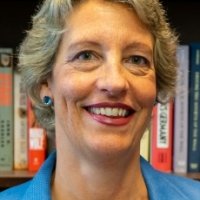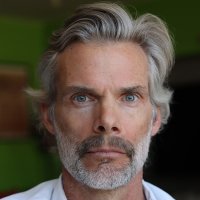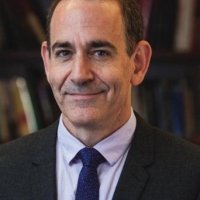Cold Wars: Asia, the Middle East, Europe
What was the Cold War that shook world politics for the second half of the twentieth century? Standard narratives focus on Soviet-American rivalry as if the superpowers were the exclusive driving forces of the international system. Lorenz M. Lüthi offers a radically different account, restoring agency to regional powers in Asia, the Middle East and Europe and revealing how regional and national developments shaped the course of the global Cold War. Despite their elevated position in 1945, the United States, Soviet Union and United Kingdom quickly realized that their political, economic, and military power had surprisingly tight limits given the challenges of decolonization, Asian-African internationalism, pan-Arabism, pan-Islamism, Arab–Israeli antagonism, and European economic developments. A series of Cold Wars ebbed and flowed as the three world regions underwent structural changes that weakened or even severed their links to the global ideological clash, leaving the superpower Cold War as the only major conflict that remained by the 1980s.
Lorenz M. Lüthi is Associate Professor at McGill University, Montréal, and is a leading historian of the Cold War. His first book The Sino-Soviet Split: Cold War in the Communist World (2008) won the 2008 Furniss Award and the 2010 Marshall Shulman Book Prize. His publications on the Vietnam war, Asian-African internationalism, and non-alignment have broken new ground in Cold War history.
Hope M. Harrison is Professor of History and International Affairs at The George Washington University. She is the author of Driving the Soviets up the Wall: Soviet-East German Relations, 1953-1961 (Princeton, 2003) and After the Berlin Wall: Memory and the Making of the New Germany, 1989 to the Present (Cambridge, 2019). She is co-chair of the advisory board of the History and Public Policy Program at the Wilson Center.
Pierre Asselin is the Dwight E. Stanford Chair in U.S. Foreign Relations at San Diego State University. He is the author of A Bitter Peace: Washington, Hanoi, and the Making of the Paris Agreement (2002), Hanoi’s Road to the Vietnam War, 1954-1965 (2013), and Vietnam’s American War: A History (2018). He is co-editor with Lien-Hang Nguyen of The Cambridge History of the Vietnam War, Volume III: Endings (forthcoming).
Timothy Naftali is Clinical Associate Professor of Public Service and a Clinical Associate Professor of History, and director of New York University's undergraduate Public Policy Major. He is co-author (with Aleksandr Fursenko) of One Hell of a Gamble: Khrushchev, Castro and Kennedy, 1958-1964 (1997) and Khrushchev’s Cold War (2006), author of George H. W. Bush (2007) and of a forthcoming book on JFK as president. Naftali was the founding director of the federal Richard Nixon Presidential Library and Museum (2007-2011).
The Washington History Seminar is co-chaired by Eric Arnesen (George Washington University and the National History Center) and Christian Ostermann (Woodrow Wilson Center) and is organized jointly by the National History Center of the American Historical Association and the Woodrow Wilson Center's History and Public Policy Program. It meets weekly during the academic year. The seminar thanks its anonymous individual donors and institutional partners (the George Washington University History Department and the Lepage Center for History in the Public Interest) for their continued support.
Selected Quotes
Lorenz Lüthi
“More often than not, the superpowers react to developments, instead of shaping them. They react to crises which were often not of their own making. If this is really the case, our focus as historians should be on those who created these crises.”
“How would the Cold War have looked like if somebody like Gorbachev had been Stalin’s successor in 1953, instead of Kruschev and then Brezhnev. I have asked this question many of my colleagues and their answers were surprisingly uniform. If you answer by arguing … that the course of the Cold War would have not been significantly different, or that the Cold War would not have ended earlier and in a peaceful manner, then you need to read my book.”
“They [Vietnamese communists] very clearly saw themselves as a part of the world revolutionary movement, of a network of like-minded movements. A loose network, not centrally actually run. And they had contacts with the Palestinians, of course with the Algerians, with the Chinese, with Africans. They helped each other where they could but it was mostly at the rhetorical level. They reinforced a message they already have, and they try to encourage each other to continue their bit, their contribution to world revolution.”
Hope M. Harrison
“Decentering the Cold War from the U.S.-Soviet conflict yields a much richer, more true to life international portrayal of this period, and it shows how far we’ve come.”
“And so Adenauer was able to deftly use developments on the other side of the world, in Asia, to get what he wanted in Germany, and many in Washington wanted the same.”
“Growing up in the West, I was curious to know how much room for maneuver was there in the Communist Bloc, and in my case between East Germany and the Soviet Union. Was it as monolithic as we in the West made it out, and, of course, as my book, Driving the Soviets Off the Wall, makes clear, you know it wasn’t as monolithic as we had thought.”
Pierre Asselin
“The Cold War was a really really messy affair. Right? And I think for too long we’ve oversimplified it. And beyond that, this idea of a long peace, or the Cold War as something that’s the product of the Soviet-American rivalry just grossly oversimplifies all that was happening around the world.”
“I think just those two chapters on the Asian-African movement and the non-aligned movement, I think really open our eyes to the need to much more seriously engage the Third World. Again, we think we understand it and then we read your chapters and we realize wow, we still have so much to learn about the Cold War, about the Third World.”
“This idea of Vietnamese communists bent on global hegemony and seriously committed to world revolution: I think you’re spot on. I think that we’ve been so obsessed with regarding the Vietnamese communists as nationalists, that we’ve overlooked the fact that they were communists and internationalists.”
Timothy J Naftali
“Lorenz has some very great work on the Vietnames, on the Chinese when they were radical, on the Egyptians when they were radical. Though he does not cover Latin America, he mentions the Cubans every so often. These are radical actors in the story who cause trouble for both status quo superpowers.”
“The shift of the players in their own national interest affects their commitment to the idealism of internationalism. So the spirit of Bandung has its limits, and those limits are drawn by national state interests.”
“I wonder if it would’ve been possible for a Gorbachev to appear after Stalin, because the questions that Gorbachev raised could really only have been raised as a result of the collapse of the soviet experiment after the Industrial era had ended.”
Speakers


Professor of History and International Affairs, The George Washington University


Clinical Associate Professor of Public Service and a Clinical Associate Professor of History, New York University
Moderator

Woodrow Wilson Center
Hosted By

History and Public Policy Program
A global leader in making key archival records accessible and fostering informed analysis, discussion, and debate on foreign policy, past and present. Read more


Cold War International History Project
The Cold War International History Project supports the full and prompt release of historical materials by governments on all sides of the Cold War. Read more
